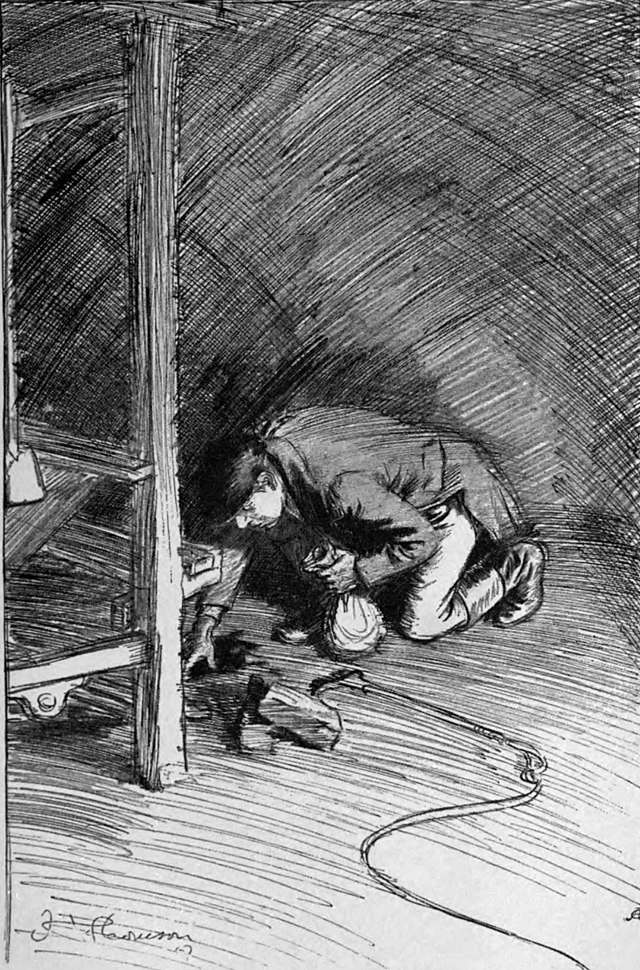Note: If you wish to receive, via e-mail, (1) my weekly newsletter or (2) daily copies of these posts, write to me at rrbates1951@gmail.com. Comments may also be sent to this address. I promise not to share your e-mail with anyone. To unsubscribe, write here as well.
Monday
My friend Valerie Hotchkiss, Oberlin’s head librarian, alerted me to a Wall Street Journal letter to the editor applying George Eliot’s Silas Marner to the California wildfires. While I’m grateful to the letter writer for alerting me to the passage, I believe he fails to apply it to the real culprit.
The Rupert Murdoch-owned Journal has fallen in line with Donald Trump in denying the fact of climate change,* and the letter is one of three pieces of writing blaming the extensive fire damage on California bureaucracy. All three insist that the state should have insisted that homeowners do more to prepare for an inevitable cataclysm. The fire devastation, in other words, is the Democrats’ fault, not the Republicans’.
The second letter uses Eliot to explain why Californians failed to prepare. They have been living in denial, Jonathan Schmerling writes, thinking that there’s no reason to adopt special fire prevention measures because they haven’t been victimized by fires in the past. They are like Silas Marner, who is confident that the gold he has hidden away under his floorboards is safe because he has never before been robbed. Here’s the Eliot passage cited by the letter writer:
The sense of security more frequently springs from habit than from conviction, and for this reason it often subsists after such a change in conditions as might have been expected to suggest alarm. The lapse of time during which a given event has not happened is, in this logic of habit, constantly alleged as the reason why the event should never happen, even when the lapse of time is precisely the added condition which makes the event imminent.”
Eliot then provides the following concrete example:
A man will tell you that he has worked in a mine for forty years unhurt by an accident as a reason why he should apprehend no danger, though the roof is beginning to sink; and it is often observable, that the older a man gets, the more difficult it is to him to retain a believing conception of his own death. This influence of habit was necessarily strong in a man whose life was so monotonous as Marner’s—who saw no new people and heard of no new events to keep alive in him the idea of the unexpected and the changeful; and it explains simply enough, why his mind could be at ease, though he had left his house and his treasure more defenseless than usual.
Schmerling sententiously concludes his letter,
When the fire-ravaged communities rebuild, perhaps Eliot’s warning will be heeded by both the public and private sectors to ensure that the complacency Mr. Dittrich exposes, which inexorably led to the current calamity, doesn’t again take hold.
Now, it may be true that Californians should have taken more measures to protect their homes against fires. In that way the editorial and the letter writers may have a point. We could also say that homeowners living on the Atlantic and Gulf coasts could and should do more to protect their homes against hurricanes and sea level rise. But because temperatures are unquestionably rising and storms are unquestionably becoming more frequent and intense, to put most of the blame on complacency rather than on hydrocarbons is like…well, like Silas Marner thinking that his gold will be safe if he hides it better or locks his house. Determined thieves will find their way in, regardless of precautions taken.
The GOP these days would like to blame the victim rather than address the problem when it comes to climate change, pandemics, political violence, growing income inequality, and other ills. Because the catastrophes are happening to other people, they confidently assume that a crisis is not (to use Eliot’s word) imminent. They believe that they will remain untouched.
Or to borrow again from the Eliot passage cited by the Journal letter writer, “The lapse of time during which a given event has not happened is, in this logic of habit, constantly alleged as the reason why the event should never happen.”
*On the connection between climate change and the California wildfires
The National Oceanic and Atmospheric Administration reports,
Climate change, including increased heat, extended drought, and a thirsty atmosphere, has been a key driver in increasing the risk and extent of wildfires in the western United States during the last two decades. Wildfires require the alignment of a number of factors, including temperature, humidity, and the lack of moisture in fuels, such as trees, shrubs, grasses, and forest debris. All these factors have strong direct or indirect ties to climate variability and climate change.


